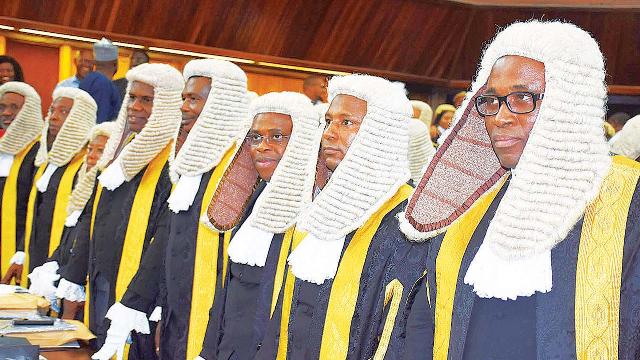Shockingly, a new report by the Independent Corrupt Practices and Other Related Offences Commission (ICPC) exposed the magnitude of bribe-for-judgement cases in Nigeria’s justice sector from 2018 to 2020.
A survey of 901 people, including 638 lawyers, 124 judges and 25 court staff revealed stinking corruption, “mostly in electoral and political matters.” There were 114 participants who did not indicate their roles.
“The money involved in the high-level corruption in this sector was categorised into money demanded, offered or paid. Demands are made by court officials including judges, while bribery offers and payment are made by lawyers and litigants,” the report said.
It added: “The total amount of money reported by the Justice sector respondents as corruptly demanded, offered and paid between 2018 and 2020 was N9,457, 650,000.00 (N9.457 billion).”
If more than nine billion naira was “demanded, offered and paid” to influence the course of justice within the period, it demonstrates that the business of corrupting justice is profitable. The result of the survey indicated that 63 lawyers paid or offered N5.77 billion as bribes for a favourable judgement.
Of the 63 lawyers, female lawyers paid or offered N918 million as bribes, and male lawyers paid or offered N4.815 billion as bribes to influence the course of justice. Eleven judges reported experiencing offers or payment of millions and billions of naira as bribes.
Obviously, bribery involves bribe-givers and bribe-takers. It is a point to ponder how the bribe-takers favoured the bribe-givers because of the bribes. Why did the bribe-givers consider such bribes necessary? Without giving bribes, would they have got unfavourable judgements in the cases concerned? Did such bribes guarantee favourable judgements?
Did the bribe-takers who delivered judgements favourable to the bribe-givers feel guilty of perverting justice? Were such judgements later reviewed by superior courts, or did the violation of justice stand unremedied? There are many questions.
Corruption in the country’s temple of justice is not new. The new report only shows that it is thriving. In 2016, for instance, a collective of “Concerned Lawyers” protested that not all lawyers and judges were corrupt. “We are embarrassed by a few of our privileged colleagues who bribe judges, talk to them behind doors to pervert justice…We have a duty to this country as ministers in the temple of justice,” said Femi Falana (SAN), who was in the forefront of the image-redeeming campaign.
The authorities in the justice sector should take the ICPC report as a wake-up call to prevent the temple of justice from becoming a market of buyers and sellers.
The Nation
































































